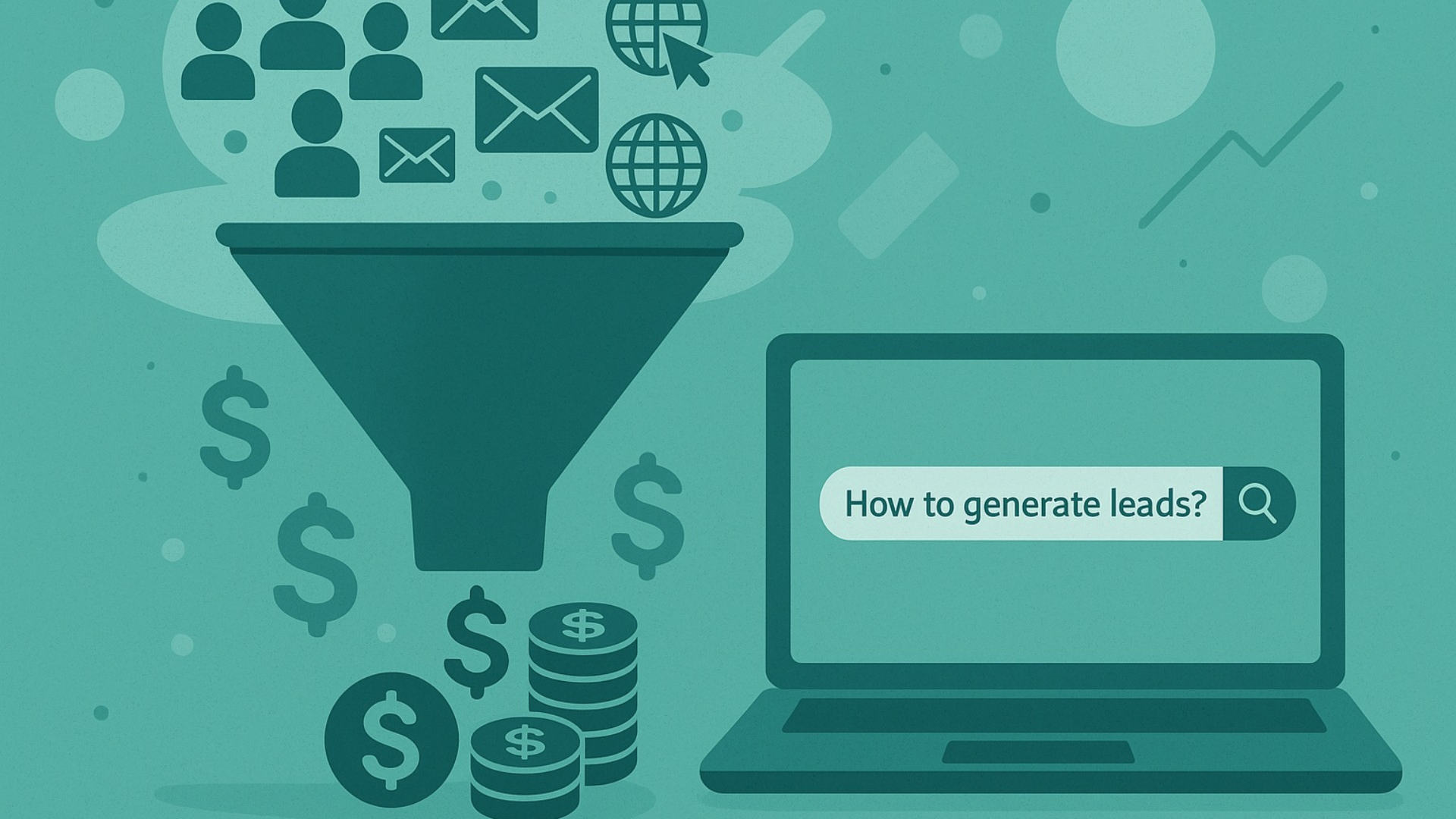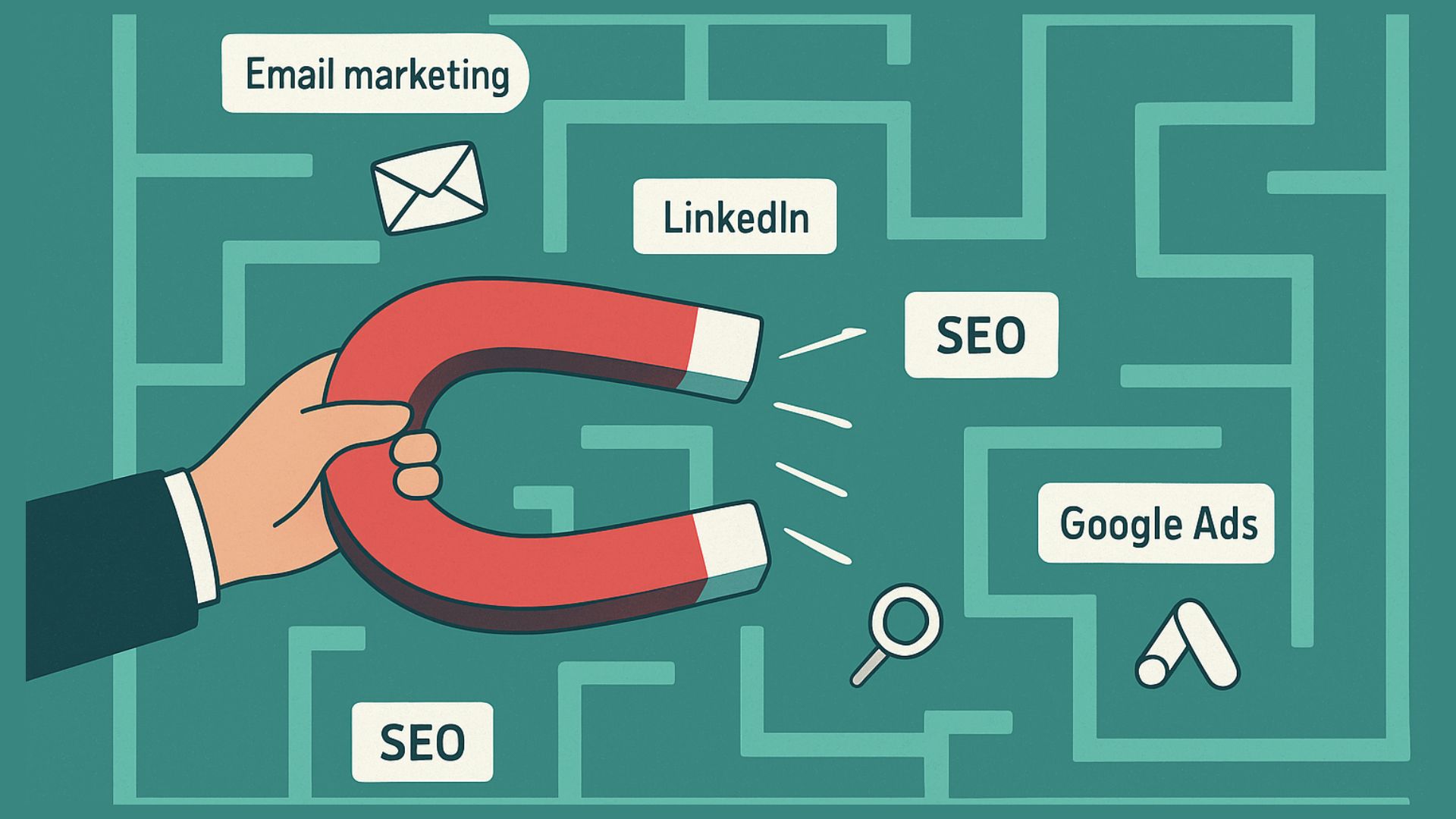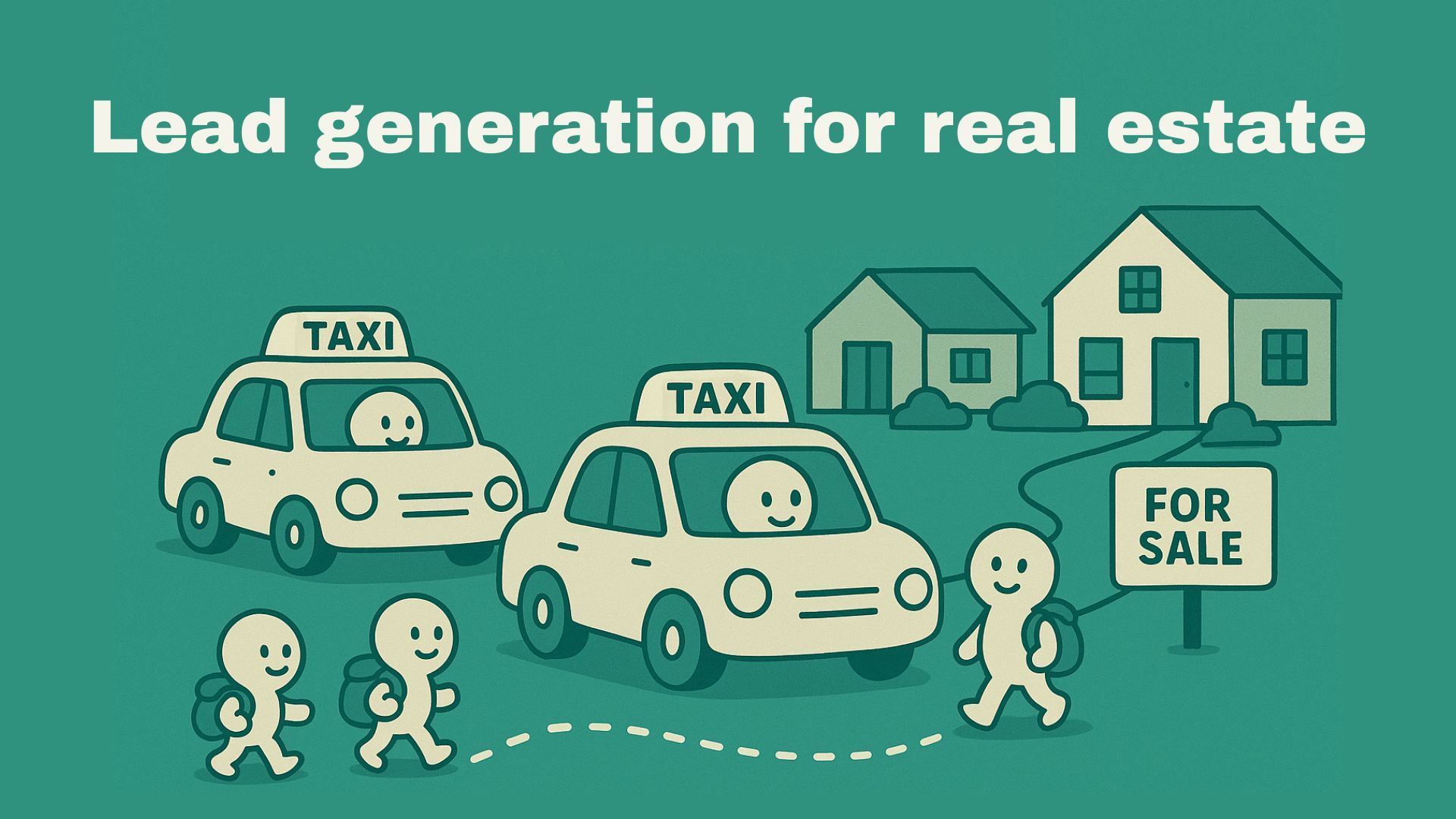

Lead generation is like turning passersby into customers, starting with attracting attention, engaging them, and converting interest into sales.
This guide explains what lead generation is, types of leads, the process, and tools to get started.
What is lead generation?
Types of lead generation
Inbound lead generation
Attracts leads through content, SEO, social media and lead magnets like ebooks or templates.
Outbound lead generation
Involves proactive outreach such as cold emails, cold calls and LinkedIn prospecting.
Organic lead generation
Generates leads naturally through search traffic, social engagement and referrals.
Referral-based lead generation
Relies on existing customers, partners or affiliates to bring in new leads.
Account-based lead generation
Targets specific high-value accounts with personalised campaigns.
Event-based lead generation
Captures leads through webinars, conferences and workshops.
B2B vs B2C lead generation
Lead generation process
Identify target audience
Define your ideal customers based on demographics, behavior, and needs. A well-defined target audience ensures your marketing efforts are focused and effective.
Attract prospects
Use channels like social media, SEO, ads, or events to draw potential customers toward your brand. The goal is to spark initial interest and get them curious about your offerings.
Engage with value
Offer useful content such as blogs, guides, webinars, or free tools to build trust. This positions your business as a helpful resource rather than just a seller.
Capture information
Encourage prospects to share their details through sign-up forms, gated content, or subscriptions. This data becomes the foundation of your lead database.
Qualify and segment leads
Not all leads are equal, so you evaluate their readiness to buy and group them accordingly. This ensures your sales team spends time on the most promising prospects.
Nurture leads
Build relationships with leads by sending personalized emails, sharing targeted content, and offering timely follow-ups. The aim is to keep your brand top-of-mind until they’re ready to purchase.
Convert leads into customers
Once a lead shows strong intent, your sales team steps in to close the deal. This is where effective communication and addressing final objections matter most.
Analyse and optimise
Track performance metrics to see which strategies are working and where drop-offs occur. Continuous analysis helps refine your process for better results over time.
Lead generation metrics
Lead volume
Total number of leads generated in a given period of time.
Cost per lead
Total campaign expenditure divided by the number of leads generated.
Lead conversion rate
Percentage of visitors or prospects who convert into leads.
Lead quality/lead score
Measures how likely a lead is to convert, based on fit and engagement.
Lead-to-customer conversion rate
Percentage of leads that ultimately become paying customers.
Time to conversion
Average time it takes for a lead to move through the funnel.
Heading text
Nunc sed faucibus bibendum feugiat sed interdum. Ipsum egestas condimentum mi massa. In tincidunt pharetra consectetur sed duis facilisis metus. Etiam egestas in nec sed et. Quis lobortis at sit dictum eget nibh tortor commodo cursus.
Odio felis sagittis, morbi feugiat tortor vitae feugiat fusce aliquet. Nam elementum urna nisi aliquet erat dolor enim. Ornare id morbi eget ipsum. Aliquam senectus neque ut id eget consectetur dictum. Donec posuere pharetra odio consequat scelerisque et, nunc tortor.
Nulla adipiscing erat a erat. Condimentum lorem posuere gravida enim posuere cursus diam.
.svg)






